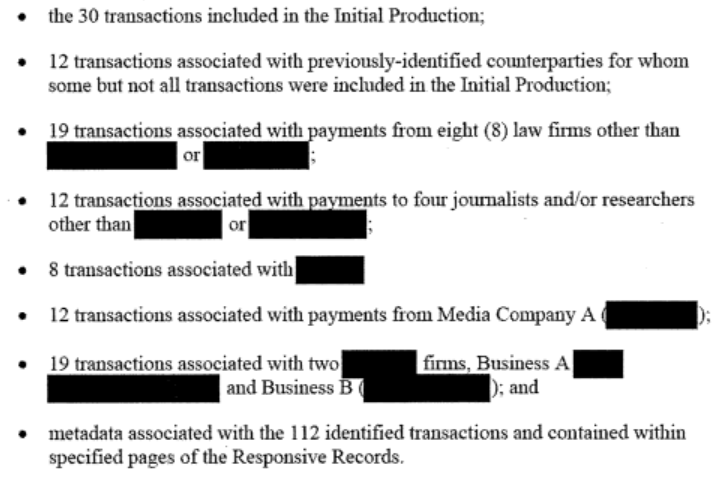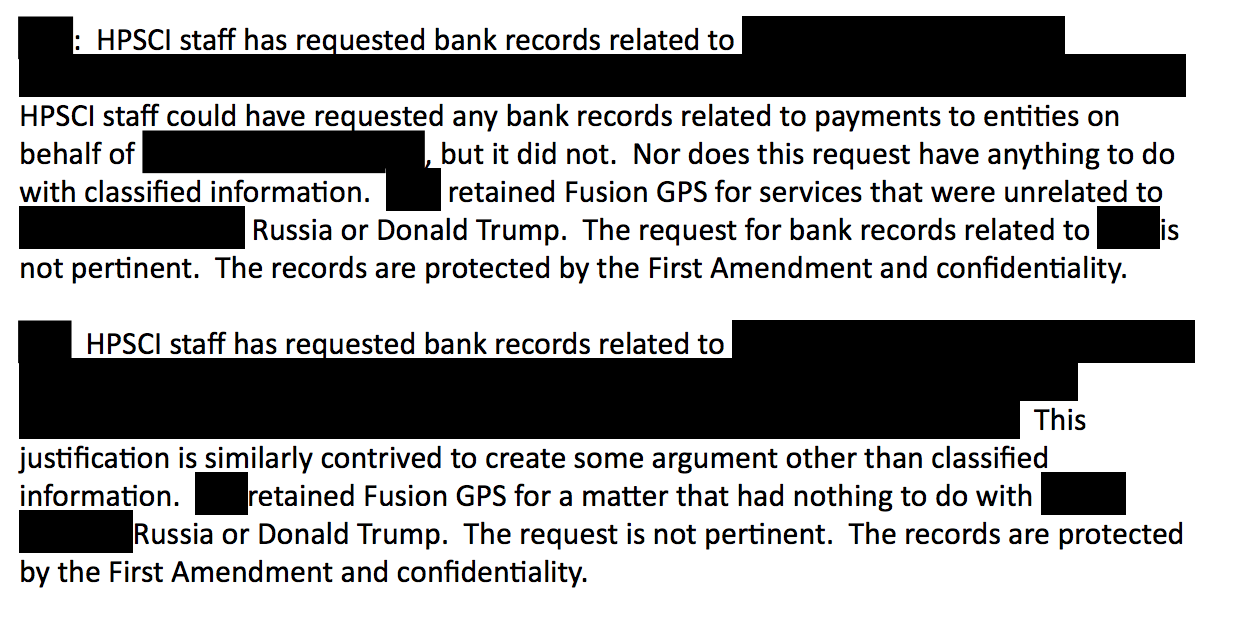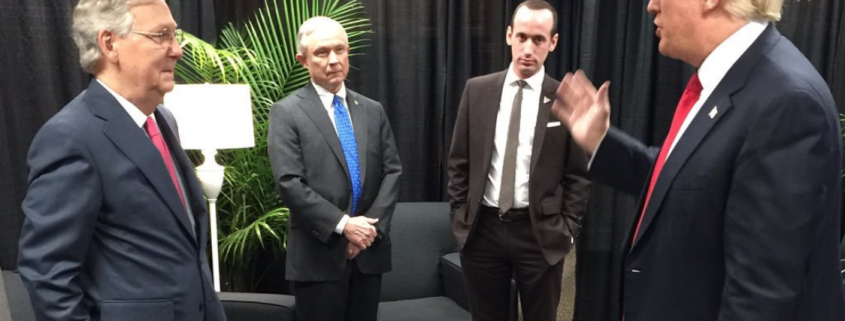Did the Steele Dossier Lead the Democrats To Be Complacent after They Got Hacked?
I get asked, a lot, why I obsess over the Steele dossier. A lot of people believe that even if the dossier doesn’t pan out, it doesn’t matter because Mueller’s investigation doesn’t depend on it. I’d be more sympathetic to that view if people like Adam Schiff and John Podesta didn’t keep invoking the dossier in ways that makes their legitimate concerns easy to discredit.
But I now believe the dossier may have done affirmative damage.
Consider the timeline.
Perkins Coie lawyer Marc Elias reportedly engaged Fusion for opposition research in April (their first payment was May 24).
April 26, Joseph Mifsud told George Papadopoulos that Russians said they had “dirt” on Hillary Clinton, in the form of emails.
April 29, the DNC discovered they had been hacked. Perkins Coie partner Michael Sussman had a key role in their response.
“Not sure it is related to what the F.B.I. has been noticing,” said one internal D.N.C. email sent on April 29. “The D.N.C. may have been hacked in a serious way this week, with password theft, etc.”
No one knew just how bad the breach was — but it was clear that a lot more than a single filing cabinet worth of materials might have been taken. A secret committee was immediately created, including Ms. Dacey, Ms. Wasserman Schultz, Mr. Brown and Michael Sussmann, a former cybercrimes prosecutor at the Department of Justice who now works at Perkins Coie, the Washington law firm that handles D.N.C. political matters.
“Three most important questions,” Mr. Sussmann wrote to his clients the night the break-in was confirmed. “1) What data was accessed? 2) How was it done? 3) How do we stop it?”
Sometime in May, Robert Johnston (who then worked at Crowdstrike) briefed the DNC on the hack. He told them how much data had been stolen, but he told them intelligence hackers generally don’t do anything with the stolen data.
When he briefed the DNC in that conference room, Johnston presented a report that basically said, “They’ve balled up data and stolen it.” But the political officials were hardly experienced in the world of intelligence. They were not just horrified but puzzled. “They’re looking at me,” Johnston recalled, “and they’re asking, ‘What are they going to do with the data that was taken?’”
Back then, no one knew. In addition to APT 29, another hacking group had launched malware into the DNC’s system. Called APT 28, it’s also associated Russian intelligence. Andrei Soldatov, a Russian investigative journalist and security expert, said it’s not crystal clear which Russian spy service is behind each hacker group, but like many other cybersecurity investigators, he agreed that Russian intelligence carried out the attack.
So, Johnston said, “I start thinking back to all of these previous hacks by Russia and other adversaries like China. I think back to the Joint Chiefs hack. What did they do with this data? Nothing. They took the information for espionage purposes. They didn’t leak it to WikiLeaks.”
So, Johnston recalled, that’s what he told the DNC in May 2016: Such thefts have become the norm, and the hackers did not plan on doing anything with what they had purloined.
May 25 was likely the date on which the last emails shared with Wikileaks got exfiltrated.
On June 9, Natalia Veselnitskaya met with Don Jr, Jared Kushner, and Paul Manafort at Trump Tower. Both at a Prevezon court hearing that morning and after the Trump Tower meeting, she reportedly met with Fusion’s Glenn Simpson. Though there’s no sign of Baker Hostetler paying for any services anytime near that meeting. Sometime Fusion associate Rinat Akhmetshin accompanied Veselnitskaya to the meeting; it’s possible he was paid for work in June.
Sometime in “mid-June,” the Perkins Coie lawyer Sussman and the DNC first met with the FBI about the hack. They asked the FBI to attribute the hack to Russia.
The D.N.C. executives and their lawyer had their first formal meeting with senior F.B.I. officials in mid-June, nine months after the bureau’s first call to the tech-support contractor. Among the early requests at that meeting, according to participants: that the federal government make a quick “attribution” formally blaming actors with ties to Russian government for the attack to make clear that it was not routine hacking but foreign espionage.
“You have a presidential election underway here and you know that the Russians have hacked into the D.N.C.,” Mr. Sussmann said, recalling the message to the F.B.I. “We need to tell the American public that. And soon.”
The FBI would not attribute the hack formally until the following year.
On June 14, the DNC placed a story with the WaPo, spinning the hack to minimize the damage done.
On June 15, Guccifer 2.0 started posting. In his first post, he proved a number of the statements Crowdstrike or Democrats made to the WaPo were wrong, including that:
- The hackers took just two documents
- Only Trump-related documents had been stolen
- Hillary’s campaign had not been hacked
- The DNC had responded quickly
- No donor information had been stolen
Now, you’d think this (plus Julian Assange’s claim to have Hillary emails) would alert the Democrats that Johnston’s advice — that the Russians probably wouldn’t do anything with the data they stole — was wrong. Except that (as far as is publicly known) none of the documents Guccifer 2.0 leaked in that first batch were from the DNC.
Around this same time, Perkins Coie lawyer Marc Elias asked Fusion to focus on Trump’s Russian ties, which led to Christopher Steele’s involvement in the already started oppo effort.
On June 20, Perkins Coie would have learned from a Steele report that the dirt Russia had on Hillary consisted of “bugged conversations she had on various visits to Russia and intercepted phone calls rather than any embarrassing conduct.” It would also have learned that “the dossier however had not yet been made available abroad, including to TRUMP or his campaign team.”
On July 19, Perkins Coie would have learned from a Steele report that at a meeting with a Kremlin official named Diyevkin which Carter Page insists didn’t take place, Diyevkin “rais[ed] a dossier of ‘kompromat’ the Kremlin possessed on TRUMP’s Democratic presidential rival, Hillary CLINTON, and its possible release to the Republican’s campaign team.” At that point in time, the reference to kompromat would still be to intercepted messages, not email.
On July 22, Wikileaks released the first trove of DNC emails.
On July 26 — days after Russian-supplied emails were being released to the press — Perkins Coie would receive a Steele report (based on June reporting) that claimed FSB had the lead on hacking in Russia. And the report would claim — counter to a great deal of publicly known evidence — that “there had been only limited success in penetrating the ‘first tier’ foreign targets.” That is, even after the Russian hacked emails got released to the public, Steele would still be providing information to the Democrats suggesting there was no risk of emails getting released because Russians just weren’t that good at hacking.
It appears likely that the Democrats asked Fusion to focus on Russia because they believed they had been badly hacked by Russia.
Everything they learned (and would have learned, if the June reporting on cybersecurity had been produced in timely fashion) between the time they were hacked and when Wikileaks would start releasing massive amounts of emails would have told the Democrats that the Russians hadn’t really succeeded with their hacking, and any kompromat they had on Hillary was not emails, but instead dated intercepts. The Steele dossier would have led them to be complacent, rather than prepping for the onslaught of the emails.
We don’t know how Steele’s intelligence was used within the party. But if they had paid attention to it, it would have done affirmative damage, because it might have led them to continue to rely on Johnston’s opinion that the stolen emails weren’t coming out.













